|
When I was first introduced to the Congregation of Holy Cross as a student at Saint Mary’s College at Notre Dame, I was confused why their patron is Our Lady of Sorrows. I see myself as a cheerleader for my loved ones and try to bring joy to everything I do in life. Studying psychology and theology taught me more about the depths of joy and the paradox of holding joy and sorrow simultaneously. Joy and sorrow are not analogous to happiness and sadness. So, I can still bring joy even when accompanying others in sorrow. In the first letter from St. Paul to the Corinthians, we learn that faith, hope, and love are the three things that will last forever. We cannot have one without the other two. We have hope because we have faith and love. As a Christ-centered marriage and family therapist, I have a couple of images of the sorrowful mother in my office so my clients are reminded that they are not alone in their suffering. The Church provides a way to reflect on the Seven Sorrows of Our Lady. In each of these arrows that pierce her heart, she is either holding, searching for, or gazing at Jesus. The Seven Sorrows of Mary:
At the Wedding at Cana, Jesus told his beloved mother that if he began his public works, their humble life together as a family would never be the same. He would no longer be just her son but recognized as the Savior of all. She would no longer be just his mother but the mother of all. She consented to this road of suffering because she trusted God and meant her words at the Annunciation, “may it be done to me according to your word.” (Luke 1:38) Imagine Mary at the foot of the Cross. She was full of sorrow watching her son take his last breaths. What kind of mother would she be if she was not sad watching her son suffer? In her tears, she believed (“Blessed are you who believed that what was spoken to you by the Lord would be fulfilled.” Luke 1:45) in the God she knew so intimately and loved with a heart that was not tarnished by sin. So, if it is okay for her to be full of sorrow, it is okay for each of us, too. We must be cognizant that our sorrow does not turn us away from the Cross in despair, but rather leads us toward the Cross in hope. We do not venerate the Cross because it is a torture device, but rather an instrument of salvation. Good Friday is not the end of the story, and Easter Sunday cannot exist without Good Friday. St. Paul wrote to the Romans that “all things work for good for those who love God.” (Romans 8:28) God does not waste anything and does not leave us alone in our sorrow. As Catholics, we believe in redemptive suffering; we can offer our suffering for the redemption of the souls of others. Mary is the first and greatest disciple and her intercession is incredibly efficacious. In my life and the lives of the clients I journey with, I have witnessed that the greatest transformation comes from seasons of sorrow. It is in those most challenging moments that Jesus and Our Sorrowful Mother embrace us with such tenderness and empathy. “For we do not have a high priest who is unable to sympathize with our weaknesses, but one who has similarly been tested in every way, yet without sin. So let us confidently approach the throne of grace to receive mercy and to find grace for timely help.” (Hebrews 4:15-16) Mother Teresa so beautifully says that, “Pain and suffering have come into your life, but remember pain, sorrow, suffering are but the kiss of Jesus - a sign that you have come so close to Him that He can kiss you.” As you carry your crosses this week, may you see it just as a piece of the puzzle that God is building in your story. Jesus is not defined by the Cross; He overcame it. You are not defined by your crosses, either. St. John Paul the Great says, “we are an Easter people and Alleluia is our song.” In tragic circumstances, look for the heroes. In times of darkness, look for the light. I think of a hymn written by Steve Warner that is often sung on the campuses of Notre Dame and Saint Mary’s College. The refrain is: “Cross of our hope, and tree of our salvation, Sown in our land, and spread near and far, Life-giving fruit, our portion and our promise, Ave Crux! Spes Unica!” https://www.youtube.com/watch?v=Lk8fpSzM8LA **This image is from: https://artuk.org/discover/artworks/study-of-the-pieta-127796**
0 Comments
“O my people, I will open your graves and have you rise from them, and bring you back to the land of Israel. Then you shall know that I am the LORD.”-Ez. 37:12-13 “Come out!” The words reverberate and resound in the stench-filled tomb. We too need to hear the words proclaimed to the dead man as we approach the end of our Lenten journeys. Come out! Lent has been our own time of preparing for resurrection—abstaining from anything that deadens us to the voice of Christ inviting us to the fullness of life. For the past few weeks, we have participated in spiritual practices that renew and refresh our spirits. We’ve journeyed with Jesus in our own deserts. And the culmination of this journey is about to occur in only a couple more weeks. Lazarus’ resurrection precedes the Resurrection that changes everything. It is a glimpse of what awaits us after death. The once rotting man stumbles out of the dark and into the light of Christ—his dear friend. Lazarus’ sisters, Mary and Martha, do not even say his name when telling Jesus of his illness, but identify him simply as “the one you love.” The one you love…What a beautiful way to be identified. I think about this for a moment before realizing this is what we are all called to and all invited to: to be the ones Christ loves. This short phrase is our deepest identity as baptized sons and daughters. We are the ones He loves. And as we prepare for Holy Week and Easter Sunday, this reality will be fully demonstrated: “For God so loved the world that he gave his only Son” (John 3:16). Jesus will tell us on Good Friday, embracing us with arms wide open on the Cross, “you are the one I love.” As a result of this great gift, Christ can call us to resurrection—not only after death, but in the here and now. So many realities in our world today threaten to numb us from this true reality. Perhaps we find ourselves in Mary’s shoes. When she and her sister hear of Jesus’ coming, Martha runs to meet Him, but Mary stays where she is. Was hope dead within her? Was she too consumed with her grief to dare to have faith? Did death have the last word? Perhaps many of us feel the same way: disillusioned. Tired. Grieving. Doubtful. But Mary’s sister, Martha, shows us another way. Her path leads to the resurrection of her heart in the here and now. In today’s Gospel, the sisters seem to have traded places. Today, it is Martha who chooses the better part. She runs to meet Christ at the moment she hears of His coming. In spite of any doubt, fear, disillusion, or grief—she acts in hope. And this leap of faith is what enables her to give Jesus her all and say, “Lord, if you had been here, my brother would not have died. But even now I know that whatever you ask of God, God will give you.” (emphasis added) (John 11:22) In these words, I hear her say, “Lord, I am disappointed. I am grieving. My brother has died and you were not here. Had you been here, he would have lived. But I give this desire to you. I trust in you. Let it be done according to God’s word.” This, in a sense, can be Martha’s fiat. Her surrendered disposition, mixed with faith, trust, and hope, is what then enables her to confirm, “Yes, Lord. I have come to believe that you are the Christ, the Son of God, the one who is coming into the world.” Martha has joined the woman at the well and the Apostle Peter in confirming Christ’s identity as the Messiah. She has “come out” of her own tomb. This past calendar year has likely felt like a tomb for many of us. Perhaps we feel most like the seemingly abandoned Lazarus languishing in the dark. “Where were you, Jesus?” we may ask with Mary and Martha. “Do you not care that the one you love is suffering?” Jesus does more than care. It is so comforting to read that “Jesus wept” at the knowledge of Lazarus’ death and became greatly perturbed. I can imagine the same, if not a greater, reaction at the death of his earthly father, Joseph. Christ weeps at our suffering. The Creator shudders to see His creation perish. This is not what we were made for. And in His humanity, Christ weeps with us and for us. But not only will the Son of God weep for His loved ones; He will die for them in just a few days. It is not enough for Him to acknowledge our suffering—He takes it on. He transforms it. He transfigures it. He resurrects it. As we approach the end of the Lenten season, let us not stay put with Mary but run out with hope like Martha. I pray this Easter Sunday to say firmly with her, “Yes, Lord. I have come to believe that you are the Christ, the Son of God, the one who is coming into the world.” We are the ones whom He loves. Let us spend some time relishing, resting, and growing in this identity in the remainder of the Lenten season and beyond. In these final weeks of Lent, let us continue to “come out” of our tombs with our prayers, fasting, and almsgiving so that we may not stumble as Lazarus did but run out towards Him who calls our name. Let us come out into the light. For more resources to accompany you on your Lenten journey, please click here. Click here for this Sunday's Mass readings. On September 14th, we celebrate the feast day of the Exaltation of the Holy Cross. In the Gospel of John, Jesus tells us: “No one has greater love than this, to lay down one's life from one's friends” (John 15:13). That love is never more evident than our Lord's passion and death on the Cross. By that Holy Cross, we have been redeemed. Jesus Christ foretold his Passion to the Apostles, instituted the Eucharist at the Last Supper, and fulfilled God's plan for human salvation at Calvary upon that Holy Cross. This, my friends, is the greatest love ever known to humankind; by the grace of God, we will come to know the fullness of God's love in eternity. The promise of eternal salvation was made possible upon that Cross and we, as Catholics, are called to pick up our cross and follow Christ daily. This is a very hard thing to accomplish in today's world.
Jesus gave us the Holy Spirit at Pentecost to guide and strengthen us while following his commands. Paul tells us: “I have the strength for everything through him who empowers me” (Philippians 4:13). Jesus Christ empowers us with the Holy Spirit today just as he did with the Apostles. It is exactly that God-given power that we need in today’s often secular world to preach Christ crucified and “fight the good fight,” as St. Paul says. For if we profess Christ without recognizing and living his sacrifice on the Cross, we cannot be disciples of the Lord. Peter found that out when Jesus admonished him after the foretelling of his passion and death. I keep written on my desk calendar in my office and in my daily liturgical calendar, a Latin phrase that I think summarizes this idea: Lex orandi, Lex credendi, Lex vivendi - As we worship, So we believe, So we live. As we worship, so we believe, so we live. We must, through worship and prayer, “Love the Lord, your God, with all your heart, with all your soul, and with all your mind” (Matthew 22:37). We must believe all that Jesus has taught us, that he is our Lord and Savior, and that he suffered and died so that we may live. We must live out our faith in what Jesus has called us to do by spreading the good news and picking up our cross and following our Lord. This is not an easy task. It isn't easy being a Christian. Christ never said it would be easy. Being a Christian is not just being a member of a religion, it is our way of life. We live the faith Christ gave to us. When we struggle with this, when we get lazy or complacent with our prayer time, or if we need a reminder of just how much we are loved and what our calling is, we need only to gaze upon the Holy Cross. We can also reflect on the Prophet Isaiah, when he told us exactly what Christ has done for us and for the salvation of man: "Yet it was our pain that he bore, our sufferings he endured. We thought of him as stricken, struck down by God and afflicted, but he was pierced for our sins, crushed for our iniquity. He bore the punishment that makes us whole, by his wounds we were healed" (Isaiah 53:4-5). Brothers and sisters in Christ, we celebrate the Feast of the Exaltation of the Holy Cross.” Remember, worship, believe, and live in the glory of Christ crucified! *This post was originally published on September 11, 2014. Mark A. Straub Sr. is a member of the Knights of Columbus and president of the parish council of Our Lady of the Woods Parish in Woodhaven, Michigan. A few weeks ago, my Bible study group was discussing the topics of suffering, healing, and the lies that we tell ourselves when afflicted by painful situations. Lies like "I am unloved, unwanted or alone," that make us feel hopeless, despairing or confused. Lies like "God has abandoned me in this situation," which lead us to distrust in the Father's goodness. We agreed that it is often easier to believe lies like these because we are already in a position of pain and in some sense they allow us run from or numb ourselves from the situation that caused the original pain. The leader of my Bible study, a beautiful mother of eight children, then compared this coping mechanism to giving birth. She explained to us that throughout her eight deliveries with her children she has come to grow in her capacity to lean into the contractions she experiences. She went on to say that the more she is able to relax and breathe through the contraction, the faster and more apt her body is able to do what it is called to do. “I don’t want to waste my contraction,” she said. Women tend to fight their contractions in labor (understandably in pain), but the tensing of the body prevents the contraction from doing what it is meant to do. She explained that leaning into the contraction is a lot like leaning into the suffering that God calls us to. Today, on the Feast of St. Thomas the Apostle, I find myself reflecting on what Thomas is most known for, his “doubting” ways. Thomas’s human response to seeing the Resurrected Lord is one with which I resonates with me deeply. Jesus gently allowing Thomas to put his finger in his side is a part of the Gospel that constantly baffles me – the compassion and understanding of Jesus in that moment! Thomas’ wound of doubt is healed by Jesus’ wounded side. With the Lord’s guidance, he leans into the “contraction” of his own suffering by allowing himself to experience in a limited way the suffering of Christ. With the Lord’s gentle hand leading him, Thomas leaves his doubt and finds faith and joy! Have you been fleeing or numbing yourself from a painful situation of suffering? What are the “contractions” of your life that the Lord wants to lead you into? What parts of your life need the gentle hand of Christ? Today, let us ask St. Thomas to pray for us and let us ask for the grace to lean into our own pain and into the Lord’s side so that we too might respond, “My Lord and my God!” “He will provide the way and the means, such as you could never have imagined. Leave it all to Him, let go of yourself, lose yourself on the Cross, and you will find yourself entirely.” St. Catherine of Sienna “Christians must lean on the Cross of Christ just as travelers on a staff when they begin a long journey.” St. Anthony of Padua Editor's note: In honor of the Solemnity of Saints Peter and Paul, a new blogger for the Catholic Apostolate Center writes about the nature of Christian brotherhood and friendship. Check out our post from last year on Peter and Paul for a little background on these great friends and evangelists.
To my fellow Christian brothers, Nothing worth doing in life is easy, and the Christian ideal is certainly no exception. As the profound early 20th century apologist G.K. Chesterton said in his book What’s Wrong with the World, “The Christian ideal has not been tried and found wanting. It has been found difficult; and left untried.” Those who recognize the Cross are called, now more than ever, to take it up. But do not try to bear the Cross alone: find other men who have accepted the weight of the Cross and have allowed God to write it on their hearts. Bear your burdens together. When you bear the Cross with your brother, you begin to form a real friendship with him – one based in vulnerability. We don’t often bring up vulnerability when talking about manliness, but it is one of the most vital qualities to have in the effort towards holiness. When Christ became man, this was the ultimate act of vulnerability. It did not stop there, though. Christ exemplified perfect holiness through His ultimate sacrifice on the Cross. By getting to know the true nature of your brother, you enter into a state of vulnerability with him where you can then challenge him to make strides towards holiness. When I asked Brother Barnabas, a Benedictine monk at Saint Vincent College, to weigh in on the topic of manliness and male Christian friendship, he recalled a time when he lived in a house with some close friends. “There certainly was a time for fellowship, especially when we had visitors,” said Brother Barnabas, “but when it was just us men around the table, we used to say, ‘alright guys, armor off.’ That’s when we would truly expose our hearts to each other and allow the Holy Spirit to strengthen us.” The relationship Barnabas talks about is the sort of relationship that binds men together and transcends spending time with your “bros.” It’s the type of relationship that doesn’t necessarily seem intuitive for men. Our culture usually portrays women as the ones who are willing to be honest and open with one another. Men are supposed to be stoic and reserved – they’re supposed to bear their sufferings quietly. Yet, we need to have the courage to reveal our true selves with absolute honesty to other men. When needed, we must have the courage to make sacrifices for our brothers and allow them to make sacrifices for us too. The burden of the Cross becomes lighter when you have a brother bearing it beside you. In the daily effort of conversion to the will of God, having a true friend can sometimes make all the difference. The Christian ideal is not easy to follow. We as men must come together, leave the armor at the door, and allow the Lord to work through our cooperation in becoming holy together. As the Lord leads us to holiness, let us ask him in the name of the Father, and of the Son, and of the Holy Spirit to give us brothers for the journey. Amen. Question for Reflection: Do you have friends with whom you can be vulnerable? In what ways can you help your friends bear their crosses? The Latin word for mercy is misericordia, which is formed from two other Latin words: “miseriae,” which means misery or suffering, and “cordia,” which means heart. One could thus say that the mercy of God draws misery out of a person’s heart. It is of the nature of mercy to therefore heal wounds. The mercy we are speaking about here is broader than the reception of forgiveness from God and granting forgiveness to others. It includes all of the spiritual and corporal works of mercy, which are also aspects of God’s very own love for us. As Pope St. John Paul II once said, “Mercy is love’s second name.” However, in this brief post, I’m going to focus on that aspect of mercy we are the most familiar with – forgiving and receiving forgiveness. I am an adult child of divorce, so I have seen first-hand what the lack of forgiveness can look like. I believe that divorce typically involves one or both parents withholding mercy. There are, of course, other complicating factors for the divorce, but I believe there is usually a failure of mercy somewhere in the relationship. I knew I did not want to repeat the mistakes of my parents, so I took a long look at mercy and examined how it might be a key to love and to healing wounds. In terms of love, I have always been struck by the beautiful reality that Matthew 19, which is Christ’s strongest teaching about the indissolubility of marital love, is preceded by one of Christ’s strongest teachings on mercy in Matthew 18, where he exhorts his followers to forgive 77 x 7 times. This number is a symbolic way for saying, “infinitely and unconditionally.” The proximity of these two teachings in the Bible suggests that the form of indissolubility is merciful love. Merciful love is not optional in relationships, but the foundation for its long-term success. Offering forgiveness gives a new beginning to the one who offends and helps relationships build from injuries that inevitably arise in any relationship, even great ones. As Ruth Graham, the wife of the recently deceased protestant minister Billy Graham said, “Marriage is a union of two good forgivers.” To offer forgiveness in the radical sense Christ is proposing here, we need to experience Divine Mercy ourselves. We can do this by going frequently to the Sacrament of Reconciliation and understanding what is occurring. In the Sacrament of Reconciliation, we receive unmerited forgiveness from Christ. He does not owe us forgiveness and yet he forgives. He also always forgives us despite the number of times we repeatedly fail at the same sin. “Christ never tires of mercy,” Pope Francis reminds us. And Christ forgave us while we were sinners before we were even repentant and able to receive that forgiveness. His cry on the Cross, “Father forgive them, for they know not what they do,” is echoed down through the centuries. When we experience this unmerited forgiveness in the Sacrament of Reconciliation, we are healed because we recognize that Christ loves us “just because.” He does not love us because we do not have sin, failures, or weaknesses. He loves us despite these things and the ugliness of our actions. He loves us “just because” we are always His beloved. Of course, Christ wants us to be repentant, to promise to be holy and sin no more, in order to be reconciled with Him and others. Yet at the same time, we must never forget that this divine forgiving love always remains unmerited because Christ loves unconditionally. With the reception of this Divine Mercy, we can then live mercifully in our own relationships in the same way and not be afraid when we or our spouse, friends, or family make mistakes, have conflict, or sin. These things happen; we are not perfect. In such moments, it is always possible to forgive, to receive forgiveness, and to love if we draw continually upon God’s grace and forgiveness. By doing so, we’ll experience healing and a deeper unity again and again through mercy. Questions for Reflection: When was the last time you received the Sacrament of Reconciliation? How have you experienced God’s mercy? It’s Holy Saturday. Jesus is dead; a boulder is in front of the tomb, and it is sealed. He is gone. So now what? What next? On Holy Saturday, my thoughts are with the apostles. Although Jesus foretold of his death, I’m not sure that they actually believed him or that they imagined it would consist of the sacrifice on the Cross. But Holy Saturday is when the reality hits them. Just imagine the millions of questions that they must have had. I imagine that they were similar to the ones above. “Now what? What next?” Imagining the disciples left with these unsolved questions, I start to realize that I too have had some questions when the going got tough or when I faced challenges, like on a recent mission trip. A few weeks ago, I had the privilege of accompanying 18 students from The Catholic University of America and two other staff members to the island nation of Jamaica for an alternative spring break cultural immersion trip. While in Jamaica, we visited several sites run by organizations like the Missionaries of Charity, the Missionaries of the Poor, and the St. Patrick’s Foundation. The most impactful day for me was the one I spent at Bethlehem House. Bethlehem House is a home for children with severe mental and physical disabilities. Of the eighty children who live there, only about twenty receive the occasional visit from their families. The rest of the children likely never see their families again. Most of them will also never be able to live on their own without significant medical assistance. The missionary in charge of the home asked if I would work with the older children, telling me that these children get the fewest visitors either by family members or by outside groups. “They need your love more than anyone else here,” he told me as he dropped me off in the room. It was just me, a caretaker (who only spoke Patois, a native language of Jamaica that is a mix of Scots and Creole) and the children. For the first hour, I didn’t know what to do. I was dumbfounded, heartbroken, and depressed by their situation. I could barely even crack a smile, let alone laugh. I didn’t understand the joy that others had talked about working with this group of children. I was aimlessly walking around the room, wondering, “What next?”. As one hour turned into two, one of the children woke up from a nap. He shouted from across the room “Hey! Hey you!” I looked at him and he said, “Come here and pick me up!” Still dumbfounded, I walked over to his crib and picked him up. He quickly told me that his name was Ashanti. Ashanti was one of the few children who was able to have a full conversation. He had such severe scoliosis that he was paralyzed from the waist down and had a lump in his back. Ashanti also had an enlarged, misshapen head. After about five minutes of walking around and talking with me, he grabbed my beard and declared that I was his best friend. He smiled and let out the most infectious laugh I have ever heard! In that moment, I knew that I was not looking just at Ashanti’s face, but at the very face of Jesus laughing and expressing joy. I learned more about love in those five minutes then I had learned in years. The rest of my day at Bethlehem House was full of joy, even in the midst of such extraordinarily difficult circumstances. In reflecting about that day, I think about the apostles on Holy Saturday who had locked themselves away in the Upper Room, unsure of what was next. They wondered and waited. But Easter did come, and their joy returned. The face of Jesus did appear again, just as it had for me in my experience with Ashanti. After Easter and with that joy, the apostles went out into the world proclaiming the Gospel. We too are called to encounter Christ in the joy of Easter and spread the Gospel message. More often than not, our days are like Holy Saturday. We experience days when all seems lost and hope seems foolish. But we must resist that temptation, resist the idea that hope will not return, that joy is lost forever. We know that Easter is coming and will always come. Joy will have its triumph. And it can be shared and experienced by all those we encounter. So on this Holy Saturday, let us be like the apostles and go out into this world after experiencing the joy that awaits us on Easter Sunday! For more Lenten and Easter resources, please click here. Can you sense something’s coming? Throughout Lent, we’ve had the opportunity to empty ourselves in prayer, fasting, and almsgiving; we have mirrored Christ’s journey in the desert after His baptism. These past forty days have called us to remember to turn to God for His grace in our lives and for a spiritual renewal to cleanse us of all that distracts us from Him. While pouring ourselves out spiritually takes time to occur and be effective, so too should we scrutinize how we are replenishing ourselves in preparation for Easter.
The Church is on the verge of commemorating the week that changed the world: from Palm Sunday through Easter Sunday, the faithful are especially mindful of Christ’s ministry and example in the days leading to His crucifixion, entombment, and Resurrection. Although it happened two thousand years ago, the significance of Christ’s life and death can never be taken for granted or downplayed! What it accomplished for us, the atonement of humanity’s impossible debt by God Himself, continues this very day to be imbued with all the raw power, emotion, and sacrifice that Christ’s followers experienced in those days. Today, these holy days afford us the chance to walk with our Friend[1] once again: to withstand persecution with Him, to unite our sufferings to His sufferings, to be wounded in the shadow of His sacred wounds, and to forgive transgressors as He did from the Cross. No, Lent is not meant to be easy, but when we give our past failings or shortcomings over to the Lord during this time, He helps us walk with Him on His journey to Calvary and ultimately, to His Heavenly Father. In dying with Him, we rise with Him (2 Timothy 2:11-13). This period of Lent can be very refreshing and renewing if we let the process take place! When we give up a comfort of ours or develop an aspect of our spiritual lives, we force ourselves to re-evaluate our faith in God and trust in His Providence. Lent helps transform us and pushes us to grow in holiness. For one, we can make sure we are doing things for the right reasons. In addition, we can better understand our dependence on things we seek for happiness or comfort, be they lesser things or God Himself. The point of our Lenten prayer, fasting, and almsgiving is not an endless wallowing in self-pity, but preparation to welcome the Risen Lord who, by His supreme salvific Act, never ceases to fulfill us. On Easter Sunday, the Universal Church will rejoice once again because her Bridegroom has gained for her eternal life over death and suffering. If you feel as if your Lent has not been the best experience, don’t worry! Take time to reflect on your shortcomings and resolve to make real efforts to turn away from the sin and other distractions keeping you from God. He is ready to embrace you no matter your state in life and will never disdain true repentance. It is not too late to join Him on His journey to Calvary—He simply desires your companionship and will help you bear your own cross, as He did with Simon of Cyrene. Alongside Him, you may struggle, fall, and have to pick up your cross again and again. With Him, you may be lifted up as an object to be misunderstood or ostracized by others. But by dying to yourself for love of our King, you will be raised on the last day to reign with Him in Paradise. Perhaps—as the local authorities in Jerusalem sensed over two thousand years ago and the Church of Rome knows now and always—something indeed is coming, and we must rise from our ashes, pettiness, emptiness, and brokenness to meet it as promised to us by the God of Heaven and Earth Himself: ‘But arise, let us go hence. The enemy brought you out of the land of paradise; I will reinstate you, no longer in paradise, but on the throne of heaven. I denied you the tree of life, which was a figure, but now I myself am united to you, I who am life. I posted the cherubim to guard you as they would slaves; now I make the cherubim worship you as they would God. The cherubim throne has been prepared, the bearers are ready and waiting, the bridal chamber is in order, the food is provided, the everlasting houses and rooms are in readiness; the treasures of good things have been opened; the kingdom of heaven has been prepared before the ages.’ Questions for Reflection: Has your Lent been a fruitful and transformative one? If not, what are some ways you can use Holy Week as a preparation for Easter Sunday? For more resources on Lent and Easter, please click here. As we continue through the Lenten season, it is natural that the newness of Lent has worn off. Maybe, if you’re like me, you have caught yourself on more than one occasion frustrated for “failing” at your Lenten plan. The reality is that Lent is not just about what we can do in terms of prayer, fasting, and almsgiving, but who we are becoming. In short, Lent is meant to teach us to love—to love in the desert, to love the daily crosses of life, and ultimately to join with Love Himself through the joy of the Resurrection. Let’s spend some time reflecting on these three types of love. To love in the desert. Even after the 30 years He spent in Nazareth, before He started His public ministry, our Lord withdrew to the desert by Himself for 40 days to pray, fast, and prepare for his mission. And as He did, we must also do. If we can encounter the love of God in the solitude of our hearts and in the quiet of prayer with Him, we will be better equipped to be able to share His love with the world. Time spent with God in the desert enables us to go out on mission. Lent reminds us—even in the deserts—that God is faithful through it all. To love the crosses. A few weeks ago, a wise priest told me to not just carry my cross, but pray for the grace to also love the cross. I’ll be honest, I shrugged the advice off initially. I don’t think I’m alone: it’s natural for us to struggle with our crosses and wonder why the Lord allows them to happen. But the beauty of Lent is that our prayer, fasting and almsgiving can allow our hearts to grow in this grace, be transformed by our crosses, and even come to love them. Let us meditate on the Passion of Christ throughout the Lenten season, asking Christ to help us embrace our cross in order to join Him in the glory of His Resurrection. To join with Love Himself. The good news for us is that the Christian life was never meant to be lived alone. For this reason, Christ instituted the Church in the Upper Room after his Resurrection. When we unite ourselves and our sufferings with the Body of Christ, we are not only participating in the mission of Lent, but the mission of our lives as Christians. We are called to build one another up throughout our lives of faith, including offering our prayers and sacrifices for the benefit of the Church. That being said, the point of these 40 days is not just to journey with each other, but towards Christ. He is our greatest mission partner, our chief example, and the cause for our joy. To join with Love Himself is the great adventure of Lent and to share in the joy of the resurrection is our great privilege as Christians. May He find us worthy this Lent of learning to love like Him. Questions for Reflection: How is your Lenten journey going thus far? Have you been able to keep your Lenten commitments of prayer, fasting, and almsgiving? Take a few moments to reflect on how you’re growing this Lent. For more resources to guide you along your Lenten journey, click here. My husband and I lingered in the Church a tad longer than usual the last Sunday of Christmas. We were taking in the beauty of the liturgical season—the lights, trees, colors, the Nativity—ultimately basking in the hope that is born from the Word made Flesh who dwells among us. To be frank, we were also lamenting the season of Ordinary Time that was next, followed by the Lenten Season. We were lamenting the transition from the hope-filled season of Advent into the Lenten journey that leads to Good Friday, where the babe in the manger becomes the suffering servant on the Cross. With Advent lasting for the shortest amount of time this year, and Lent approaching quickly thereafter, I find I am still reflecting on the Mysteries of the prior Christmas season. I suppose I am still sitting in my parish church reflecting on the Wise Men bringing the Child Jesus gifts, reflecting on the idea that a child caused conversion. Highly educated adult men encountered a baby in a stable for animals, and this encounter prompted a change of heart. I would prefer to stay in that time of hope and joy rather than enter into the gore and the sacrifice of the Passion. A few weeks ago, I was reading a reflection in the Magnificat, a daily Mass companion, about the conversion of the Thief on the Cross. The author mentioned that the thief went through a conversion upon encountering the Lord, bloodied, beaten, on the verge of death. The author asks, “What is it that brought the conversion to the thief?” Jesus was in a position of shame, and yet the thief sought repentance and salvation. How could this be? Jesus as the Messiah would have been hard to believe based on His appearance and vulnerability on the Cross, particularly to a thief who had lived a life worthy of crucifixion. Jesus as a child wrapped in swaddling clothes and Jesus on the Cross have the ability and desire to convert souls. Jesus is Lord in every season. He wants our hearts. Christmas seems so beautifully packaged; it can appear that Jesus as a child is sweeter, warmer, more approachable. Yet the story of the Good Thief shows that Christ can also be approachable in his ability to suffer with and for mankind. The thief’s conversion on the cross invites us to approach the bruised and beaten Lord with our own trials and hardships. I was fearful to head into the darkness of Lent, forgetting that Jesus wants to be with us, in His vulnerability, even in our difficult times. Whether we are fleeing suffering, undergoing trial, or in a stagnant time spiritually, we must not put limits on Jesus’ desire for closeness with us, especially as we enter into the season of Lent. If you are struggling with the beginning of the Lenten season, desiring to stay back in the light and joy of the Christmas season like my husband and I, remember that Jesus wants to enter into your Lenten journey, into each season of your life. If you open yourself to him as the Good Thief did on the cross, he can and will grab your attention and be present to you during this season of fasting and preparation. Let us pray for hearts that are open to God’s graces during Lent, open to an encounter and conversion with Christ during every season of the heart. Question for Reflection: Are you struggling to enter into the Lenten season? How can you more deeply invite Christ into your Lenten journey? Click here for resources to accompany you throughout your Lenten journey. “Remember you are dust, and to dust you shall return.” -cf Genesis 3:19
On Ash Wednesday, people around the world will hear these words while ashes are crossed onto their forehead. While this isn’t the only phrase that ministers can say during the distribution of ashes, it is the one that makes me stop and ponder the most. When I was younger, this phrase confused me. “Of course we aren’t ACTUALLY dust” was my thought. “When I get cut I bleed blood, not dust! I am made out of flesh and bone!” For years I thought this way, and for years I saw Lent as any other period of 40 days: normal. To me, there was nothing extraordinary about Lent except that it was the time leading up to Easter. Sure, I gave up chocolate and didn’t eat meat on Fridays, but that was it. It wasn’t until high school that I started to realize what exactly the implications of these words are. “Then the Lord God formed man of dust from the ground, and breathed into his nostrils the breath of life; and man became a living soul.” – Genesis 2:7 Dust is natural. It exists as the substance of inception of all mankind. By the will of the Father, through the working of the Holy Spirit, we were given life out of the dust. We often think of dust as the substance that flies through the air or sits on our dresser, not the substance from which we come. Yet God, in his Infinite Love, gave it meaning by transforming dust into our very beings, into humanity. As Pope Francis reflected in his homily on Ash Wednesday last year: “The mark of the ashes with which we set out reminds us of our origin: we were taken from the earth, we are made of dust. True, yet we are dust in the loving hands of God, who has breathed his spirit of life upon each one of us, and still wants to do so.” God, infinitely perfect and whole in himself, desired to create because of his love. We were made out of an outpouring of love of the Trinity. This understanding has changed the way I approach Ash Wednesday. Dust calls us to conversion. It reminds us of our beginning and our end—of our smallness, but also of the greatness of our God. Donald Cardinal Wuerl of the Archdiocese of Washington reminds us that during Lent “We are invited to see ourselves as dust again, to detach ourselves from the things of this world and empty ourselves so that we might be filled instead with God’s ‘breath of life,’ that is, with his eternal Spirit.” By contemplating our beginning and end, we are better able to focus on the eternal life offered by Christ and the resurrection to which we are called. Therefore, Ash Wednesday sets the tone for our Lenten journey as a particular day of fasting, inviting us into forty days of a desert experience as we prepare for the celebration of Easter. Ash Wednesday, helps us to “empty ourselves” as Cardinal Wuerl wrote, in order to be filled with God and more receptive to his promptings throughout the Lenten season. As Pope Francis said in his 2015 Ash Wednesday Homily, Lent helps us then to reorient ourselves “to the arms of God, tender and merciful Father, to trust Him and to entrust ourselves to Him.” The Distribution of Ashes is the only liturgical event of its kind; there is no other time in the liturgical year in which we are called to come forward as a Church and be reminded in such a profound way of our origin, our humanity, and our impending death. This enables us to focus more clearly on the eternal life won for us by Jesus Christ. Cardinal Wuerl continues, “By his Cross and Resurrection, though we be only dust and ashes, we will be made a new creation.” This Lent, I invite you to contemplate the phrase “Remember that you are dust, and to dust you shall return” more deeply. How can we let ourselves experience conversion in order to become a new creation? For more resources during Lent to prepare you for the Easter season, click here. "I am the living bread that came down from heaven; whoever eats this bread will live forever; and the bread that I will give is my flesh for the life of the world."-John 6:51 This Sunday, the Church celebrates the Solemnity of Corpus Christi, the feast commemorating the institution of the Eucharist. In Sunday’s Gospel reading, Jesus says the words above after performing the miracle of the multiplication of the loaves and fish. When he states these words, Jesus has already been preaching and healing as part of his ministry for some time. He has performed many miracles and healed many people. He has taught in synagogues and given the Sermon on the Mount. He has accrued a steady following and fostered great interest throughout Judea and Galilee. Now, Jesus takes his teaching to the next level by beginning his discourse on his real presence in the Eucharist. In this discourse, Jesus says exactly what he means. He does not haphazardly preach or simply say what the people wish to hear. Jesus is not concerned about whether his teaching will offend others or be misinterpreted—so much so that he does not recant his words even after many of his followers decide to abandon him because of this teaching. When he is questioned about his words, rather than hastily coming up with an explanation or saying that he is only speaking figuratively, Jesus instead becomes even more precise in his language. In order to ensure that those around him fully understand the seemingly baffling words he has just stated, Jesus reiterates and continues more solemnly, "Amen, amen, I say to you, unless you eat the flesh of the Son of Man and drink his blood, you do not have life within you. Whoever eats my flesh and drinks my blood has eternal life, and I will raise him on the last day.” If those listening to him had any misconception or misunderstanding, Jesus makes his point abundantly clear. The same God who created the world through the Word now speaks words that will ultimately form a new creation: bread and wine transformed into his Body and Blood. As St. Ambrose asks, “Could not Christ's word, which can make from nothing what did not exist, change existing things into what they were not before?” (CCC 1375) Why did Jesus institute the Eucharist, which we celebrate today? The Catechism of the Catholic Church states that he did so “in order to perpetuate the sacrifice of the cross throughout the ages until he should come again, and so to entrust to his beloved Spouse, the Church, a memorial of his death and resurrection: a sacrament of love, a sign of unity, a bond of charity, a Paschal banquet 'in which Christ is consumed, the mind is filled with grace, and a pledge of future glory is given to us.'" Christ’s words come before the sacrifice on the Cross but are meant to instruct his followers regarding God’s promise of salvation. Just as Adam and Eve fell by the consumption of food, we are saved by the consumption of food—bread and wine transformed into the Body and Blood of Christ. It’s a beautiful similarity. Although his Passion completely took on the burden of sin and opened the doors of heaven back to mankind, Jesus loves humanity so much that he cannot bear to “leave us orphans” (cf John 14:18). As a result, he remains with us in the Eucharist, which renews his sacrifice on the Cross at every Mass and allows us to consume him. Christ knows that, “Besides physical hunger, man experiences another hunger, a hunger that cannot be satiated with ordinary food. It’s a hunger for life, a hunger for love, a hunger for eternity.” He appeases this hunger for life by giving us life itself, this hunger for love with love itself, this hunger for eternity with eternity itself. We need God himself in order to be satiated. Pope Francis said in his Corpus Christi homily in 2014 that, “The Eucharist communicates the Lord’s love for us: a love so great that it nourishes us with Himself; a freely given love, always available to every person who hungers and needs to regenerate his own strength.” This communication of love for us is abundant and humbling. Christ gives us himself every single time we attend Mass or visit the Blessed Sacrament in order to regenerate our strength on the journey towards heaven. Having taken “the form of a slave, coming in human likeness; and found human in appearance,” Jesus knows the struggles and hardships of mankind. Jesus knows our hunger (cf Phil 2:7). And so he feeds us, sustains us, and nourishes us with himself. “The Church and the world have a great need for Eucharistic worship. Jesus awaits us in this sacrament of love,” John Paul II wrote in Dominicae cenae. Will you meet him there? Will you allow him to satiate your hunger? Let us close with this prayer from Pope Francis: Jesus, defend us from the temptation of worldly food which enslaves us, tainted food; purify our memory, so it isn’t imprisoned in selfish and worldly selectivity, but that it may be a living memory of your presence throughout the history of your people, a memory that makes a “monument” of your gesture of redeeming love. Amen. Question for Reflection: What are some worldly foods that may be preventing you from more fully receiving Jesus in the Eucharist? Hope lives! It might seem to be a strange phrase at first, but if we replace the word “hope” with “Jesus” or “Christ,” then it immediately makes sense to a believer in the Resurrection. The 50-day Easter season is a celebration not simply of an event that happened in the past, but is also a season filled with the hope that comes from belief in the Risen One, Jesus Christ. What is this hope? It is the hope that all believers in Christ have that they will rise with him. It is the hope of salvation that comes through him. It is the hope that no matter the suffering, pain, challenge, and difficulty that is encountered in life, our lives as Christians belong to Christ. Our lives are meant to serve him, rather than self-serve—to do his mission, rather than our own. None of this is easy; it requires hope in the One who lives! As Pope Francis tells us, “He who hopes, hopes one day to hear these words: come to me my brother, come to me my sister, for the whole of eternity.” The way to the hope of the Resurrection is the way of the Cross. Only through the painful experience of Good Friday do we come to Easter joy and hope. Most of us want to avoid pain as much as we can. However, I have learned the most and deepened my faith, trust, and hope, as well as become more loving and compassionate, as a result of painful, cross-like experiences. Some will say that suffering is meant to test us or is sent by God. Instead, I prefer to believe as my mother does, and say, “Stuff happens.” Indeed, it does. Suffering happens as a consequence of personal sin, the sins of others, and also the action of evil. What do we do when these things happen? Do we curl up into a fetal position in the corner of a room and wait for life to end? No, as I learned well during my years at a Pallottine shrine dedicated to the patron saint of hopeless cases, St. Jude. The pilgrims who came there taught me by their lives and their joy that even in our suffering, in our experiences of the Cross, we strengthen our belief that hope lives. Christ calls us to continue moving forward in life and in love, sharing what we have found in him with all those we encounter. As the Father raised the Son on that first Easter, God still provides for us today. He saves us from our sins and gives us hope. We are called to see with the eyes of faith in Christ, feel the love of Christ, and be filled in our hearts with the hope of Christ – a hope that lives now and forever. Amen! Alleluia! Question for Reflection: How can you spread the hope of the Easter season to your friends, family, or community?
In the small German village of Oberammergau, every ten years since 1634, roughly two thousand townspeople from all walks of life come together to stage the world’s most famous “Passion Play,” a dramatic re-enactment of Holy Week from Palm Sunday to the Resurrection. What that one town literally does every ten years, all Christians perform every Holy Week—and it is every bit as real. The liturgies of Holy Week teach us that we are not merely passive spectators but living participants and actors in the ongoing story of the “Paschal Mystery,” the saving life, death, and Resurrection of Jesus Christ. In our celebrations, we remember not just something that happened, but something that is happening, namely, the redemption of the world through the work Jesus Christ accomplished by His Cross and Resurrection. We are not playing someone else’s role in an entirely scripted fiction, but discovering our own part and contribution within a story that God is still writing. The basic structure of Christian existence, as a drama and extended experience of Holy Week, was one of the great lessons and insights shared throughout the life of Pope St. John Paul II, himself an actor and playwright. One of John Paul II’s biographers described the pope’s core vision of, “the cosmic drama of divine love being played out in the human quest for a true and pure love” (The End and the Beginning, 413). John Paul II received this vision primarily through his nourishment from Sacred Scripture. He interpreted life in light of the Gospel story of Jesus. The Passion Narrative in the Gospel of John, which some and dark, symbolizing the tension of love and sin that function almost like stage directions. I think we experience much of our life of discipleship as a drama, which is much different from experiencing all times and aspects of life as dramatic. The drama of life is often slow, ordinary, and unremarkable. There are long periods of waiting, working, growing, and hoping, punctuated by divine breakthroughs that remind us that He has been directing and giving commands all along. I find that I need Holy Week for its power to provide context for every frustrated hope, betrayal to those I love, loss of friends and family, and struggle to stand for what is true and just. On Holy Saturday, when things seem darkest, Jesus descends into those dark places of our world and our souls and shines a light, giving us the courage to hope that when Jesus says, “It is finished,” it actually means God is not done with us yet. Just when we think it’s over, the veil is torn and the curtain is raised—Christ is resurrected, and invites us not only on Easter Sunday, but anew each day, to live in the hope and joy of his victory over sin and death. Question for Reflection: What part or contribution is God calling you to in the ongoing story of salvation? As we enter into Holy Week, I invite you to reflect on the week that changed the world as understood in the Christian context: the celebration of the salvific event of the Passion, Death, and Resurrection of our Lord. Let us contemplate that great exemplification of Christianity in the symbol lifted upon Golgotha on Good Friday for the world to gaze upon: the Cross. “Behold the wood of the Cross, on which hung the salvation of the world,” we hear on Good Friday. It’s a strange symbol, isn’t it? An instrument of ignominious death, the Cross is for Christians not a sign of defeat but of certain victory! Rare is the Catholic home or school that does not have at least one prominently displayed in it somewhere—but perhaps rarer still are Catholics who pray while actually holding not a cross, but a crucifix. Upon seeing the Crucifix, however, a person must decide whether to accept Christ’s death— including the truth of all He revealed—or to reject Him. For the faithful, it remains a powerful prayer tool, one that does not require elegant words to be meaningful. In holding a Crucifix, one is offering a very powerful prayer. The Crucifix invites us to more deeply meditate upon the precious wounds of Christ. Indeed, one is reminded of our Lord’s words to St. Thomas, “Put your finger here and see my hands,” while tracing one’s fingers over the tiny replica of His wounded hands, feet, side, and the crown of thorns upon His head. Each of us is called to take up our cross and follow Christ (cf Mt 16:24). Our lives should model the Way of the Cross, which St. Mary Elizabeth Hesselblad hailed as “the most beautiful of all because on this path I have met and known my Lord and Savior.” St. Josemaría Escrivá, however, urges: Don’t drag the Cross... Carry it squarely on your shoulder, because your Cross, if you carry it so, will not be just any Cross: it will be... the Holy Cross. Don’t bear your Cross with resignation: resignation is not a generous word. Love the Cross. When you really love it, your Cross will be... a Cross, without a Cross. And surely you, like Him, will find Mary on the way. (St. Josemaría Escrivá, The Way of the Cross (New York: Scepter, 1990), n.p.) Whenever we are weak, how surely will our Mother at once fly to our aid when we faithfully call upon her name! When bearing our crosses, we may be tempted to cry out, “My God, my God, why have You abandoned me?” This utterance of Christ from the cross, however, was not merely a lamentation but Him offering Psalm 22 to His Father. Let our every word, then, be a prayer, let our every action be an act of faith, our every thought be of kindness, and our every deed, one of love, the same kind offered upon the Cross. And, Pope Francis gently offers, “When everything seems too much, when it seems that the world is crashing down on you, embrace Christ’s Cross, draw close to him, and please, never let go of his hand.” Question for Reflection: How can you pick up your cross more diligently in these last few days of Lent? |
Details
Archives
July 2024
Categories
All
|
About |
Media |
© COPYRIGHT 2024 | ALL RIGHTS RESERVED

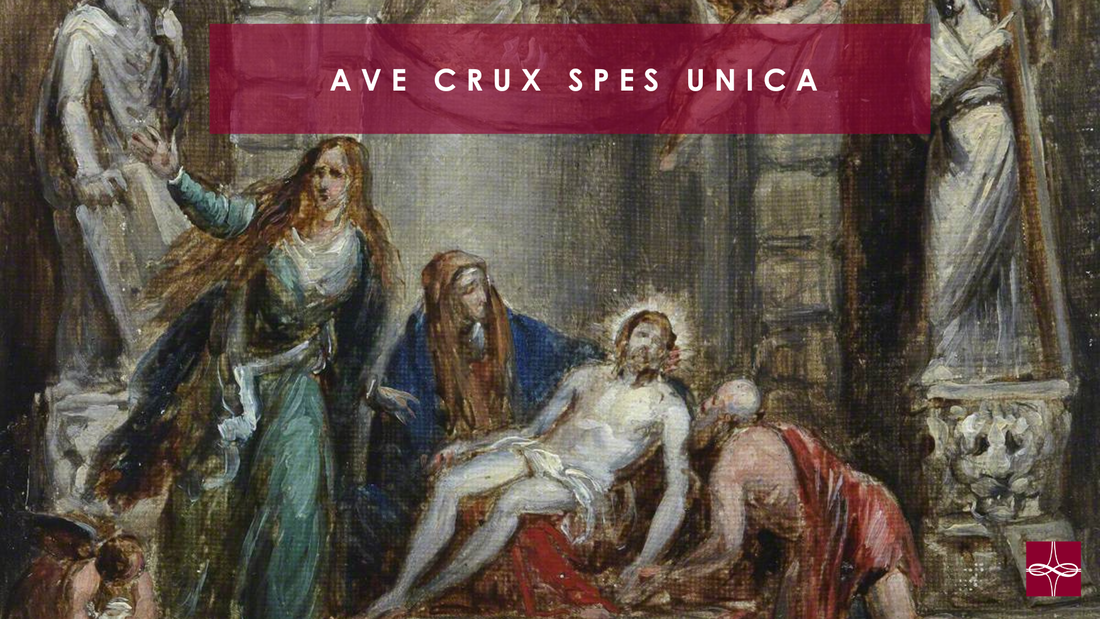

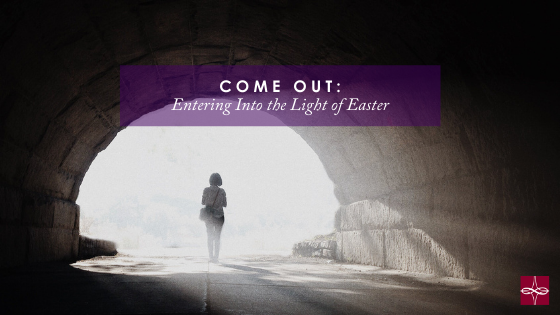

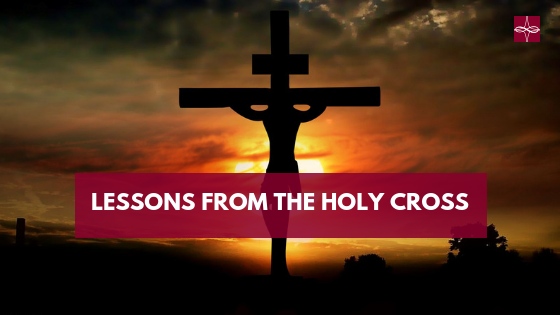
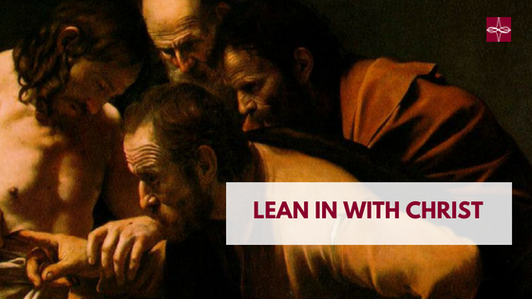

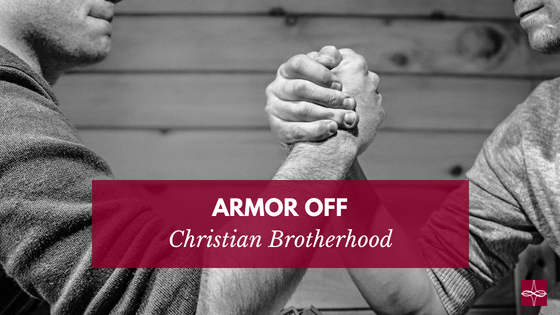

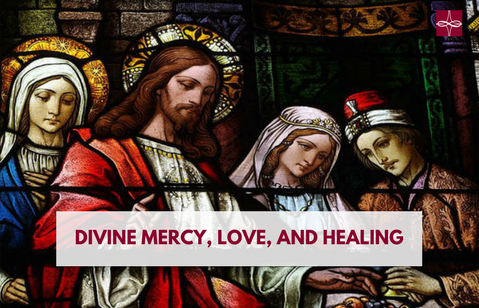

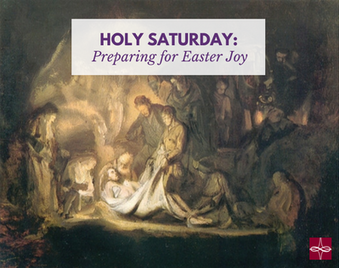

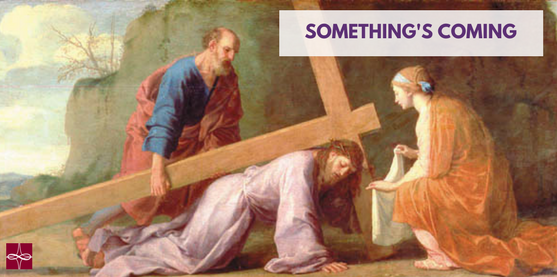

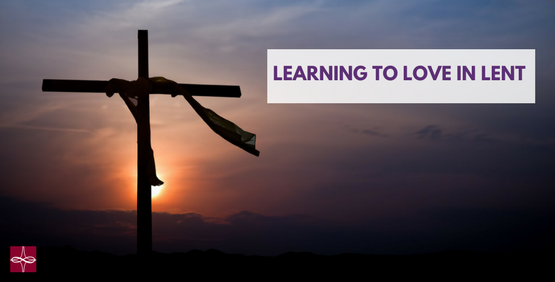

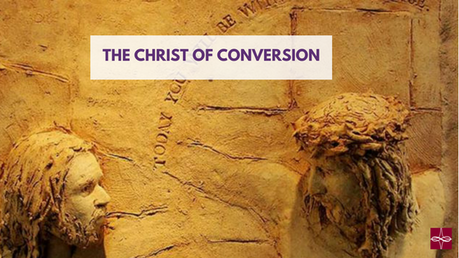

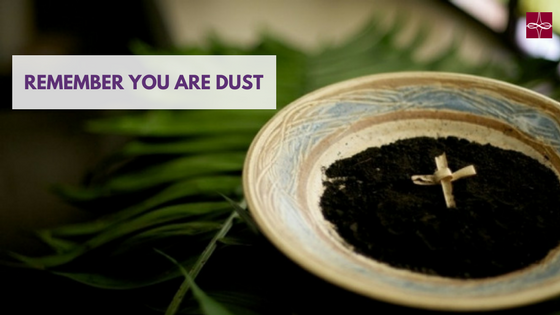

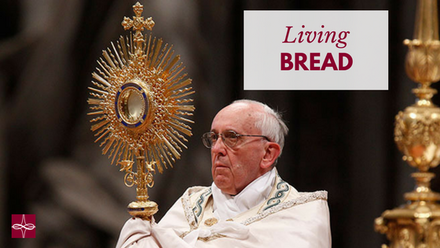

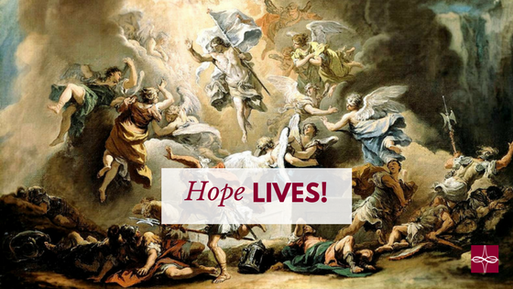
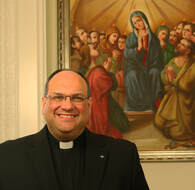


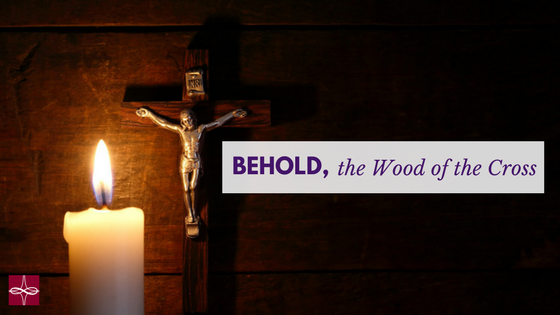

 RSS Feed
RSS Feed